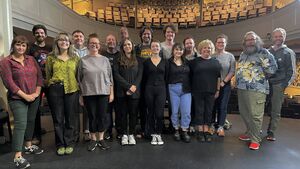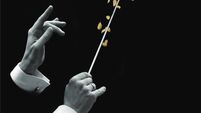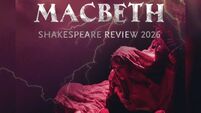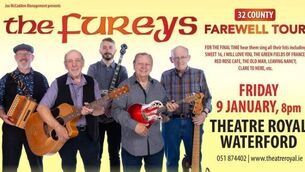An edgy evening with the Bard as Waterford looks to unrehearsed Shakespeare

The cast of 'Unrehearsed Scenes from Shakespeare'
Going onstage unrehearsed must be stomach-churning.
We have all experienced “a dry” onstage and it’s not for the faint-hearted.
Professional actors have thrown in the towel after such events.
I can understand why.
Being onstage in front of an audience when the lines don’t come is as scary as being Shakespeare’s “naked, new born babe” abroad in a storm.
I can feel the nervous tension in the actors’ voices when the cast come to greet us in the foyer and in the auditorium.
Performing Shakespeare with only your own part as script and without any rehearsal is high-stakes gambling for any actor who values reputation.
It’s all part of the First Folio performance schedule - reputedly in vogue - during Shakespearean times when vellum was pricey, scribes were expensive, breach-of-copyright feared and rehearsals costly.
Simon Purse, one of the UK’s leading experts on Shakespeare’s First Folio method expands on his theory on Shakespearean rehearsal – or lack of it.
The Globe’s actors were not given a complete copy of the play but worked from individual parts (a Cue Script).
With little time for rehearsal, preparation would mostly be private, and the performances would have come together in a spontaneous semi-improvised way.
Actors did have apprentices, however, and would have worked with the younger cast to improve their performances.
For the last five days or so, Simon has lead workshops with the cast of Shakespeare Squared in preparation for staging some eight scenes from well-known Shakespearean texts to a live Theatre Royal audience.
Not one of the scenes has been rehearsed.
The actors only meet their fellow actors for the first time onstage and they have only their own script to work from.
Hardly ideal for building a character.
Still, the plotline does survive.
Information is as scant for the audience as it is for the cast.
No programme, no cast list and no information on what play excerpts are to be performed.
We’re basically looking at a performance in rehearsal.
To increase the cast’s uncertainty, the plays are randomly drawn from a bowl and announced by Simon Purse who acts as the prompt.
So…there’s no opportunity for actors to build a character from interacting with their opposite in a scene.
Even finding the other actor is problematic.
Tonight, however, the Bard of Avon’s words are beautifully delivered although characterisation is often ropey enough.
How could it be otherwise? Macbeth and Lady Macbeth, Hamlet and Ophelia, Iago and Emilia receive no more than cursory entries and exits.
The bit in the middle belongs entirely to the performers.
To be fair, the actors do not leave themselves or us down.
Simon Purse tells us that he expects a “curate’s egg” of a performance.
Good in parts. And so it proves.
Some sparkle.
Paula Weldon is outstanding.
Joe Meagher and Andrew Holden give powerful performances as do others – unfortunately, I do not have a cast list.
Some struggle with lines; others pull through with the prompt’s assistance.
Actors who don’t know their lines make an audience nervous.
Still, this audience understands context and is a forgiving lot.
They recognise that we’re really in the middle of a first rehearsal and that, somewhere deep within us all.
We identify with the actors and feel for their edgy performances.
I certainly don’t recognise any “it-shoulda-bin-me” cries when a Hamlet or a Brutus or a Hotspur appears.
Safe within our seats, we’re content to let them at it!
The whole experience is like being at a rehearsal as actors struggle to build a character and remember their lines.
Rarely enjoyable and usually painful.
Well…it was different…I suppose.






